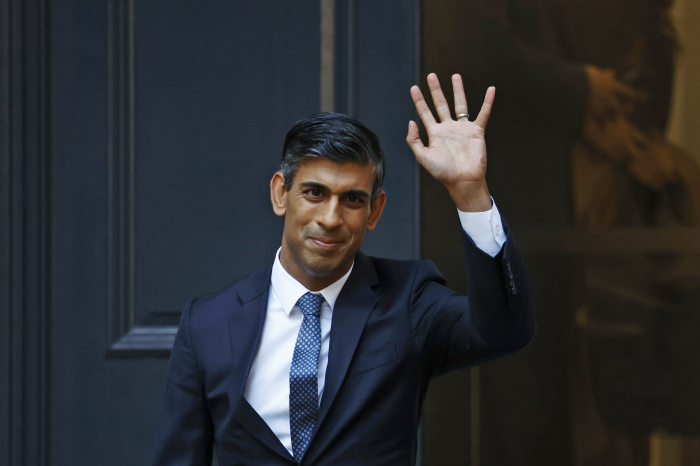Prime Minister Rishi Sunak has been challenged over the early release of dangerous criminals under a scheme aimed at easing overcrowding in jails.
During PMQs, Sir Keir Starmer asked for a guarantee that no criminals considered high risk were freed early.
The PM insisted no-one deemed a threat to public safety would be eligible.
But the Labour leader pointed to an example of one inmate who posed a danger to children, who had his release date brought forward.
The case was revealed in a report on HMP Lewes by the prisons watchdog, external, which was published on Tuesday.
The individual had a history of stalking and domestic abuse but was released without a full risk assessment.
The original scheme, introduced last October, allowed "low-level offenders" to be freed from prisons in England and Wales up to 18 days early under strict supervision.
This was increased to up to 60 days in March and will be further extended to up to 70 days from 23 May.
The government has said no-one convicted of a sexual, terrorist or serious violent offence would be eligible for early release.
The prison population has ballooned in recent decades as a result of tougher sentences and court backlogs.
Sir Keir said the government had not provided "basic details" about the scheme, including how many prisoners were being released early, where they were and what crimes they had committed.
He called for domestic abusers to be exempt from the scheme.
In response, Mr Sunak said: "There are strict eligibility criteria in place, with exclusions based on public safety and no-one will be put on the scheme if they were deemed a threat to public safety."
The PM said prison governors also had "an absolute lock" over who was put on the scheme.
He added that those released were subject to strict conditions and supervision, which he said was in contrast to under the last Labour government.
Mr Sunak will be especially eager to maintain the Conservative Party's reputation for being tough on crime in an election year.
Under repeated questioning from Sir Keir on the issue he hit back by arguing that the Conservatives believe more than Labour that prison prevents crime.
That attack line shows precisely why Mr Sunak is also now vulnerable if Labour can establish the argument in voters' minds that prisoners are being released early who should not be on the streets.
In a piece of potentially awkward timing, one of the main pieces of legislation the government still hopes to complete before the general election is a Sentencing Bill, external.
The proposed law is partly intended to address the capacity problems by suspending almost all prison sentences of less than a year and expanding home detention.
But some prisons campaigners say this is insufficient to deal with the problems in the system, and in other ways the bill is designed to put people in prison longer - with those who commit the most violent murders imprisoned for life, and those sentenced for rape and some other sexual offences required to serve their whole sentence in prison, whereas currently they can in some circumstances be released on licence after two-thirds of the sentence.
More about:
















































